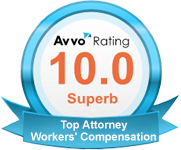Minnesota Sexual Orientation Discrimination Lawyers
Who you love should not affect your employment. In Minnesota, there are laws in place to protect you, the employee, from an employer who discriminates against you because of your sexual orientation. Experienced employment attorneys at Heimerl & Lammers will carefully explain your legal options against your employer, including bringing a discrimination case for compensation and other damages. To schedule an appointment with Heimerl & Lammers, call (612) 294-2200.
What Is Sexual Orientation Employment Discrimination?
You may be able to bring a sexual orientation employment discrimination lawsuit against your employer if:
- Your workplace treats you differently than other employees because of your sexual orientation;
- Managers or coworkers harass or disrespect you and not others;
- You are passed up for promotions, raises, or even terminated because of who you are.
Employment discrimination comes in many forms. At its core, it is when your employer discriminates against you because of an “immutable characteristic,” or something about yourself that you cannot change. In Minnesota, the Minnesota Department of Human Rights investigates complaints of discrimination based on a protected class described by the statute. An employer cannot make decisions based on hiring, firing, promoting, or creating tension around anyone who may fall into these groups. Protected classes in Minnesota include:
- Race
- Color
- Creed
- Religion
- National Origin
- Sex
- Marital Status
- Disability
- Public Assistance
- Age
- Sexual Orientation
- Gender Identity
- Familial Status
- Local Human Rights Commission Activity
For example, if your employer consistently promotes your heterosexual counterparts while you are a homosexual person with the same skills, you may be a victim of workplace discrimination based on sexual orientation. Another example of this type of discrimination is persistent comments about sexual orientation or sex, including derogatory descriptions or parallels to the opposite sex because of your sexual orientation. If you have experienced this, you may be a victim of workplace harassment. Sometimes examples of workplace discrimination and harassment may be easy to spot and direct, whereas other times, it is quiet and insidious in the workplace environment.
What Is “Unwelcome Conduct”?
Based on the EEOC’s definition of harassment (any “unwelcome conduct” based on the above-protected classes), we are faced with determining what exactly “unwelcome conduct” is and what it is not. The EEOC uses a two-prong test to determine if the conduct is considered unwelcome and harassment.
The first prong of the test is to determine if you (the employee) must continue to endure the conduct in order to remain employed at that company. The second prong must show that a reasonable person must consider the conduct intimidating, hostile, or abusive.
These prongs may sound broad and difficult to prove, but a skillful attorney at Heimerl & Lammers can help you determine if the conduct you have been experiencing may be considered unwelcome conduct and raise to the level of harassment.
Laws That Prevent Workplace Discrimination
Many laws may help protect Minnesotans who have been victims of workplace discrimination. The federal government and the state of Minnesota create and enforce these laws.
Title VII of the Civil Rights Act of 1964
In 1964, the government passed a federal law that prohibits employment discrimination based on specific protected categories. These categories or protected classes were primarily based on the employee’s body and their family status. The protected classes are similar to what the current Minnesota law protects. The original classes Title VII of the Civil Rights Act of 1964 protected were:
- Race
- Color
- Religion
- Sex
- National Origin
These original classes helped protect employees in the 1960s, but throughout the years, the federal government realized they needed to expand these areas to incorporate more people and create new classes to ensure every employee was entitled to the protection they deserved. Currently, the above categories have been expanded to include the following:
- Sex – meaning pregnancy, sexual orientation, or gender identity
- Age – if you are forty or older
- Disability
- Genetic Information – includes family medical history
The new and expanded categories can help employees ensure their claims can be heard when they feel they have been discriminated against in the workplace.
Minnesota Human Rights Act
In 1967, the Minnesota legislature established the Minnesota Department of Human Rights (MDHR). This department was created to replace the State Commission Against Discrimination. When the MDHR was created, the legislature also created specific procedures for enforcing the Minnesota State Act Against Discrimination. These procedures established how the investigations, public hearings, and appeals would function.
In 1973, the act was renamed to be titled the Minnesota Human Rights Act. The act was also amended to create the protected classes of marital status, disability, or status with regard to public assistance. Between 1973 and the current day, the Minnesota Human Rights Act has undergone significant changes to account for the changes in our present times.
As it stands today, the Minnesota Human Rights Act adds two more protected categories. These categories are receiving public assistance and participating in a human rights organization. The legislature believed these were important categories to add since no employee should be denied a job or treated differently in their current job just because they are receiving government benefits or exercising their right to be a member of a human rights organization.
The MHRA statute is written to be very broad and inclusive of all groups of people who may identify as one group or another. The MHRA protects additional civil rights for Minnesotans compared to federal law. The statute protects employees who choose to identify with a protected class as well as employees who are perceived to be in a certain protected class. For example, if an employee is terminated or is not promoted because their employer “thinks” they are gay or bisexual, they will be protected, even if they do not actually identify with those groups.
The law further extends to the employee’s gender identity or gender expression. This is defined as having a self-image or identity which is not typically associated with the sex they are born. Our attorneys are experienced in handling cases where our clients have been discriminated against on many fronts. We can help determine which direction will give us the best chance of recovery.
The Minnesota Human Rights Act protects against workplace discrimination. Discrimination is commonly seen as a one-time only event, whereas harassment is an ongoing process. Based on the type of treatment you are experiencing, we may be able to bring a claim for both harassment and discrimination. An employment lawyer can help you determine your best path forward before it is too late.
Who Is Protected from Workplace Discrimination?
Everyone in Minnesota is a part of more than one of the above-protected classes in some way or another. You may be wondering if you qualify under the law’s protections – what if you are not a citizen of Minnesota? What if you are an undocumented worker? What if you are an unpaid summer intern?
The Minnesota Human Rights Act protects just that – humans. Even if you are not a Minnesota citizen or do not have the legal right to work in the United States, you can use the protections afforded to you in the Minnesota Human Rights Act.
Yes, this even applies to unpaid interns. If you are in a position within a company, you can be protected by the Minnesota Human Rights Act.
When Are You Protected from Workplace Discrimination?
Many people assume that the hiring process is the only time where you are not allowed to be asked questions about the specific areas above, but that is not the case. The Minnesota Human Rights Act protects you from the first contact with the employer throughout your entire employment with them and even after you leave your job.
Suppose you feel you are being discriminated against because of your sexual orientation in a workplace in Minnesota. In that case, you may be able to bring a claim for a Hostile Work Environment even if you have not quit or have been fired yet. This claim is based on unlawful discrimination. Discrimination may be proven to be unlawful if it is based on one of the categories above. We will discuss later what you should do if you feel you are currently a victim of workplace harassment.
How Much Might My Case Be Worth?
If you are considering suing your employer, it is important to understand what you could gain and what you could lose before you pursue the case in court. Many lawsuits last for many years, and you will still have to live and pay bills while the lawsuit is going on. Although we have a high success rate in cases like these, it is still important to consider what may happen if you do not win your case. One way to do that is to look at what you may recover if you win.
The value of a case depends on numerous factors. A skilled attorney can help you evaluate each factor and estimate how much your case might be worth based on the situation you are in right now. There is no way of really knowing how much you may recover before an attorney digs in and analyzes what you have lost and what you may be able to recover.
What Can You Recover
In an employment discrimination case, you may be able to recover for lost wages, emotional distress compensation, and other damages allowed under both the MHRA and the ADA. These acts also allow you to get your attorney’s fees paid if you win. The damages you receive really depend on the situation and the employer.
What Should I Do if I Am a Victim?
So, you feel like you have been or you currently are a victim of workplace harassment. What should you do?
First, you should contact the attorneys at Heimerl & Lammers to help you determine the next best steps in your case. We can help you through the difficult scenario you may be in and help you walk away from an abusive workplace.
Next, you should start documenting everything. It will be easier if you have a log of each incident that occurred when it occurred and any other individuals who may have been part of the incident. Documents that reference discrimination are important to maintain.
Finally, if you have already made complaints with your supervisor or human resources department, you will need to show that the management has taken no action to improve the situation. If you have not made a complaint yet, consider consulting with your attorney first to determine the best way for you to make your complaint so that it may help you down the road.
If you have been a victim of workplace sexual orientation discrimination, know that you are not alone. We can help you throughout the process and protect other innocent employees from being harmed as you have.
A Minnesota Sexual Orientation Discrimination Attorney Can Help
Sexual orientation discrimination lawyers who routinely handle these claims can go a long way in helping you win your case. The sex discrimination attorneys at Heimerl & Lammers can help you get the compensation you deserve. If you have been a victim of workplace discrimination or feel you are currently a victim, schedule an appointment with us today by calling (612) 294-2200.

Sexual Orientation Discrimination
It is unfortunate that LGTQUIA workers can face discrimination due to simply being who they are. If you are experiencing harassment, loss of opportunities, or other forms of discrimination due to your sexual orientation, give us a call. You have rights, and our employment law lawyers can help make sure your experiences do not go unanswered.
Our Commitment to
Service
Our commitment to you includes:
loading ...
loading ...
You are not alone
We Can Help.
The attorneys and staff at our firm take the time to actually listen to our clients. We will carefully explain the process you are facing and guide you through it while looking out for your best interests. We know that each client’s individual situation is unique and important to them. Therefore, we won’t treat your representation with the “cookie-cutter” approach other law firms seem to take.
If you need to speak with an attorney, contact us today. We can assist with a wide array of issues, including divorce, child custody, family law, personal injury, wrongful death, construction injuries, truck accident injuries, and workers’ compensation.
Get in touch with an attorney today.
Sign Up for Our Newsletter




